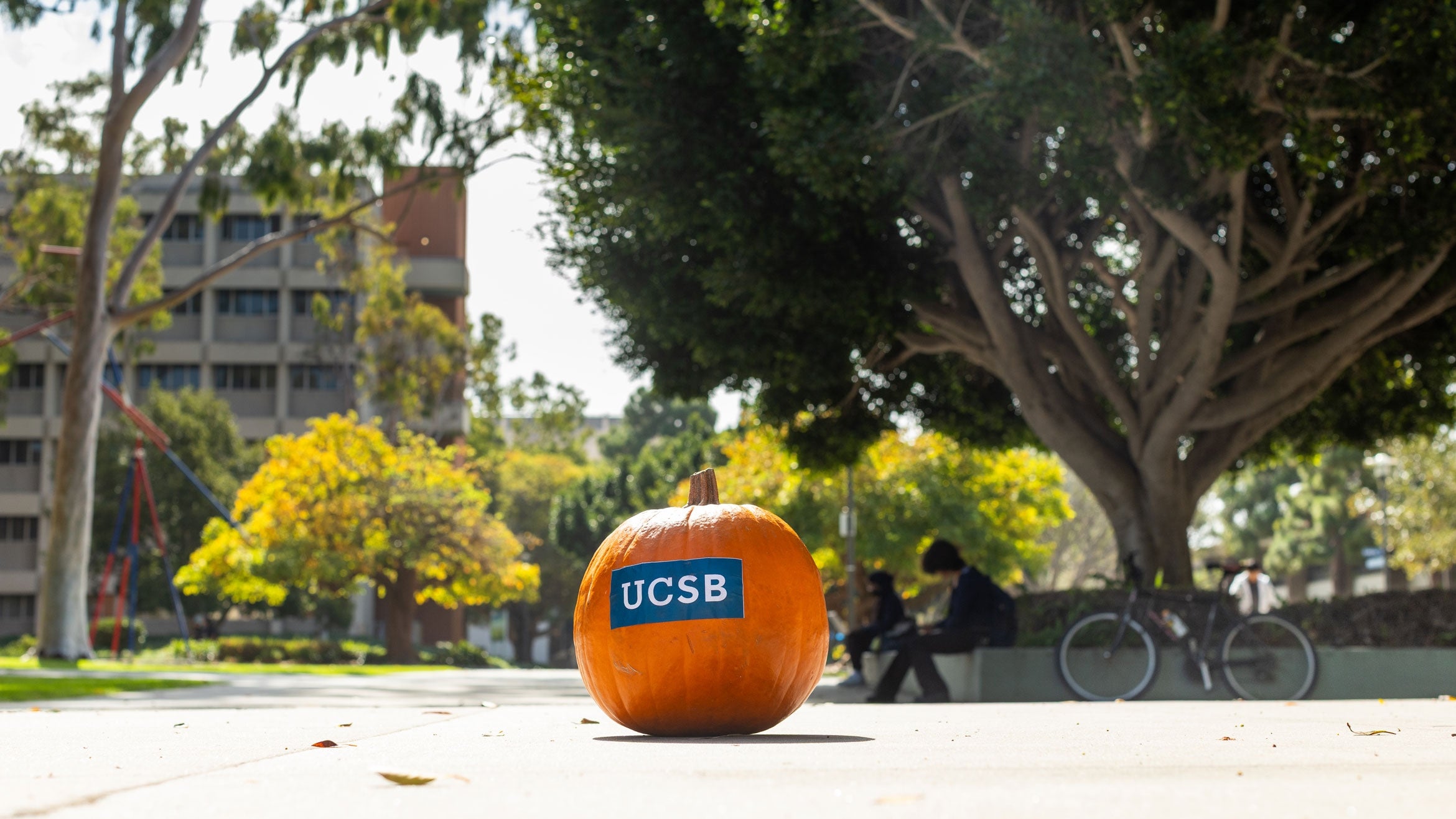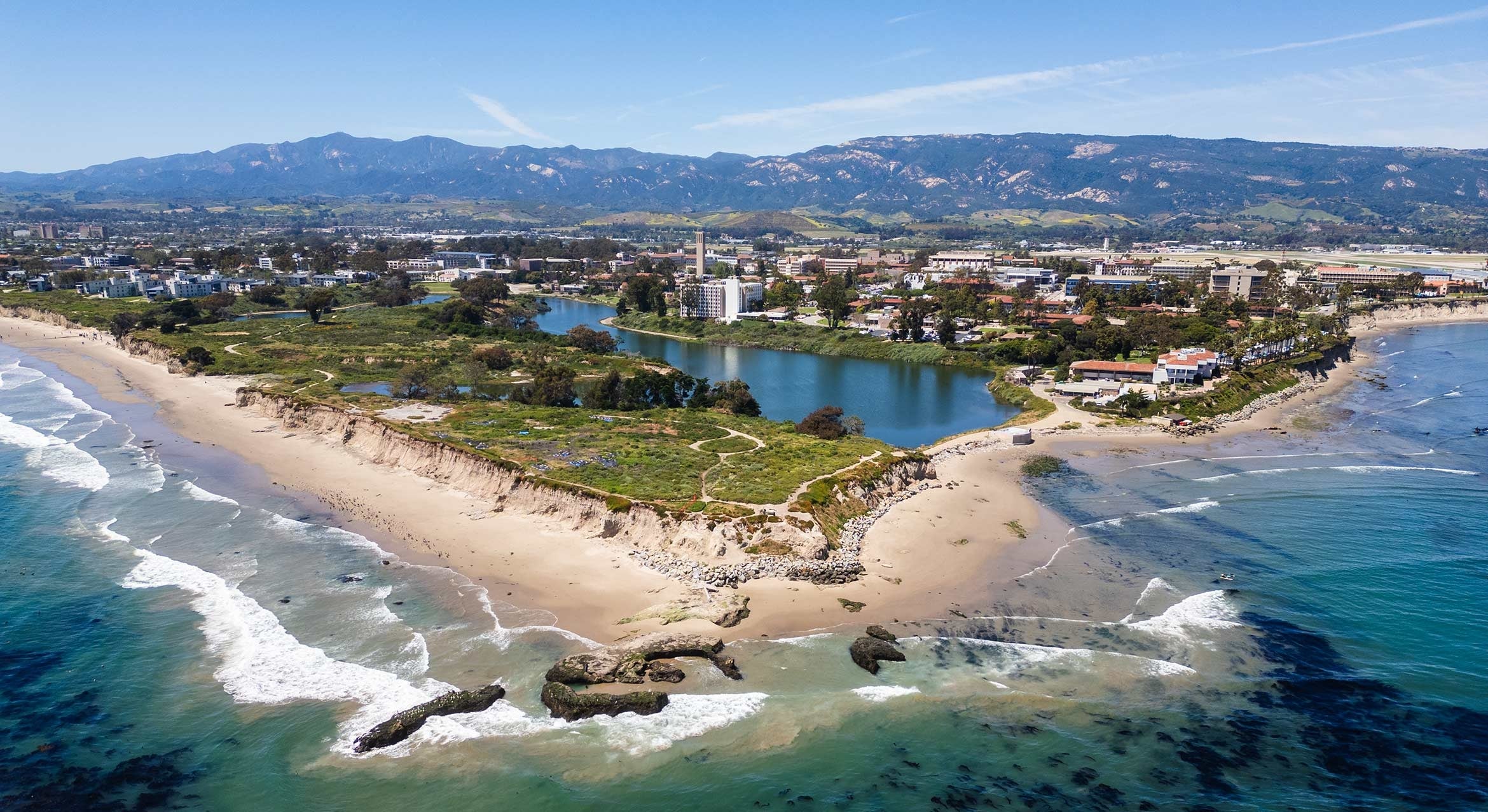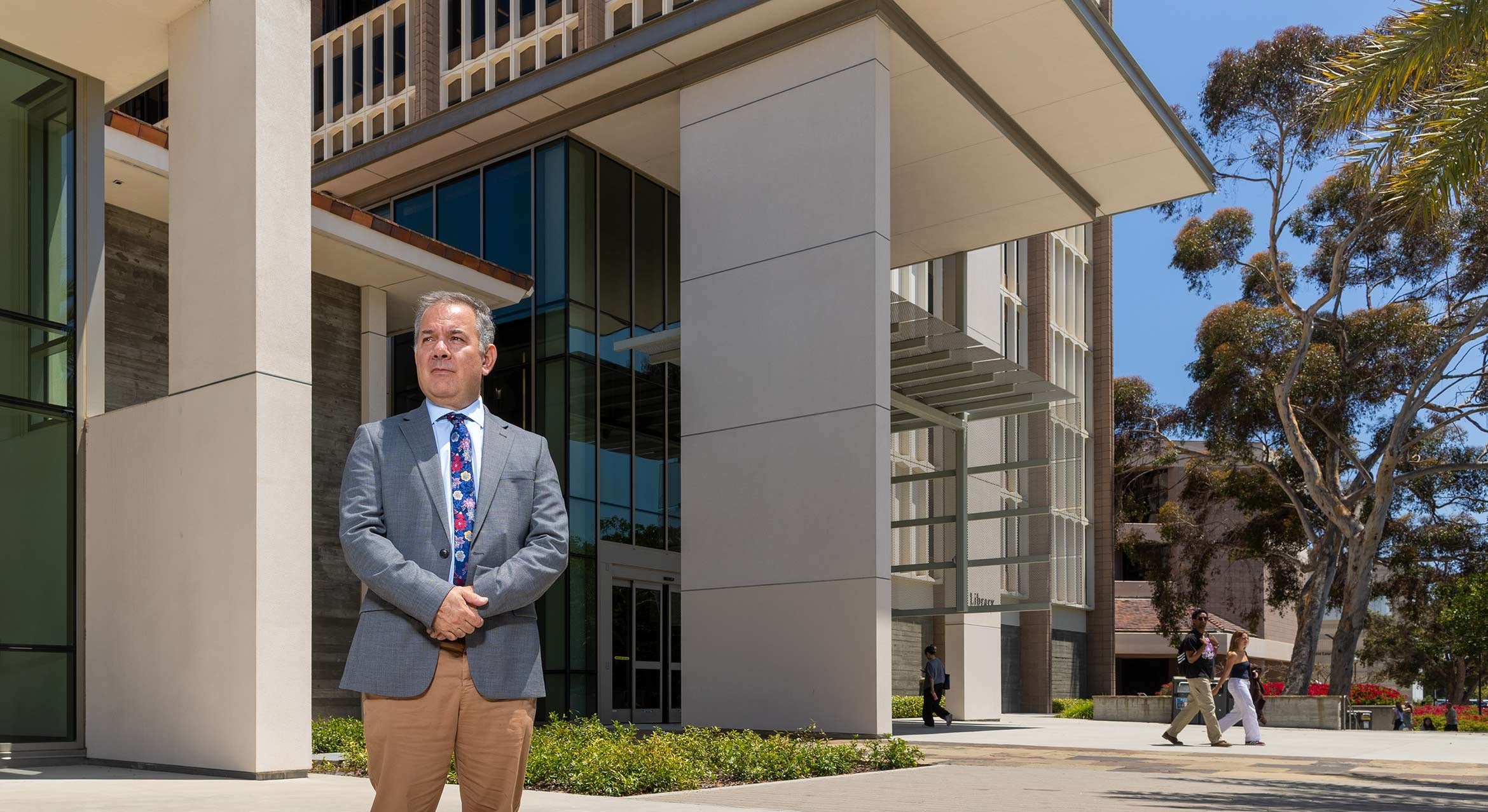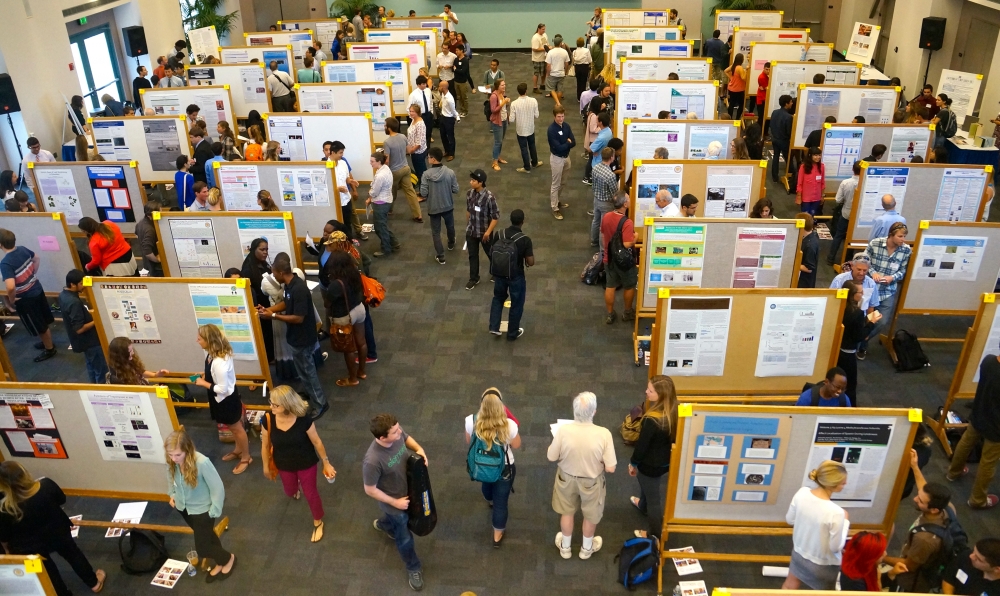
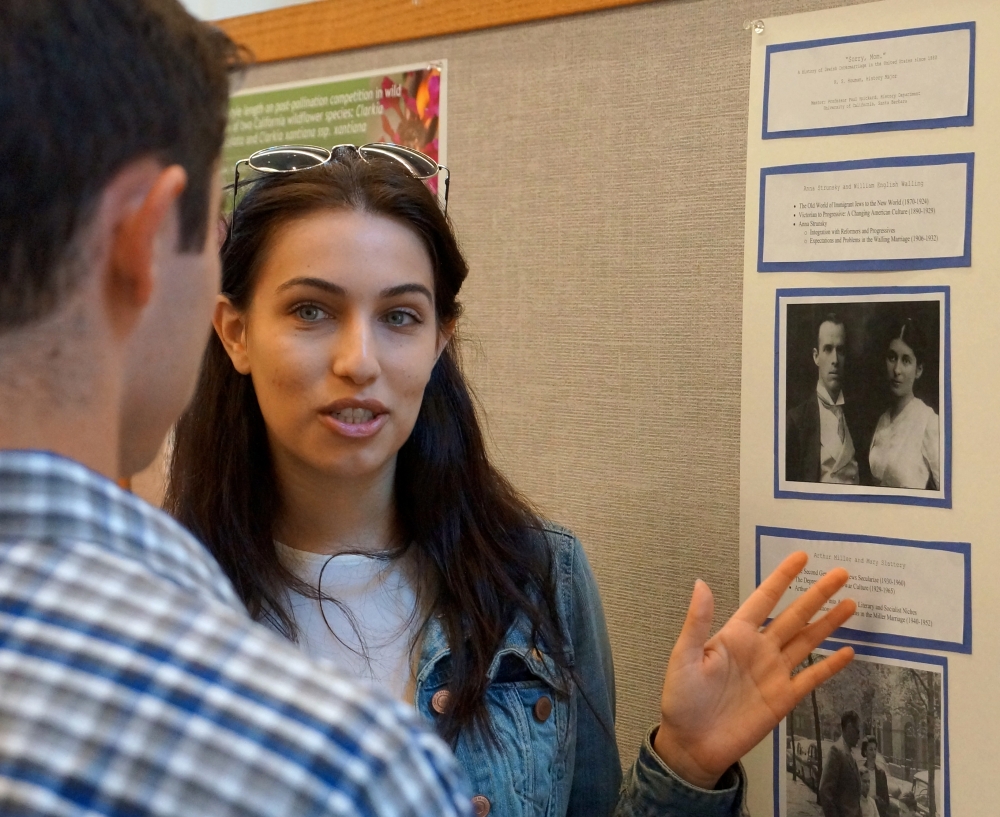
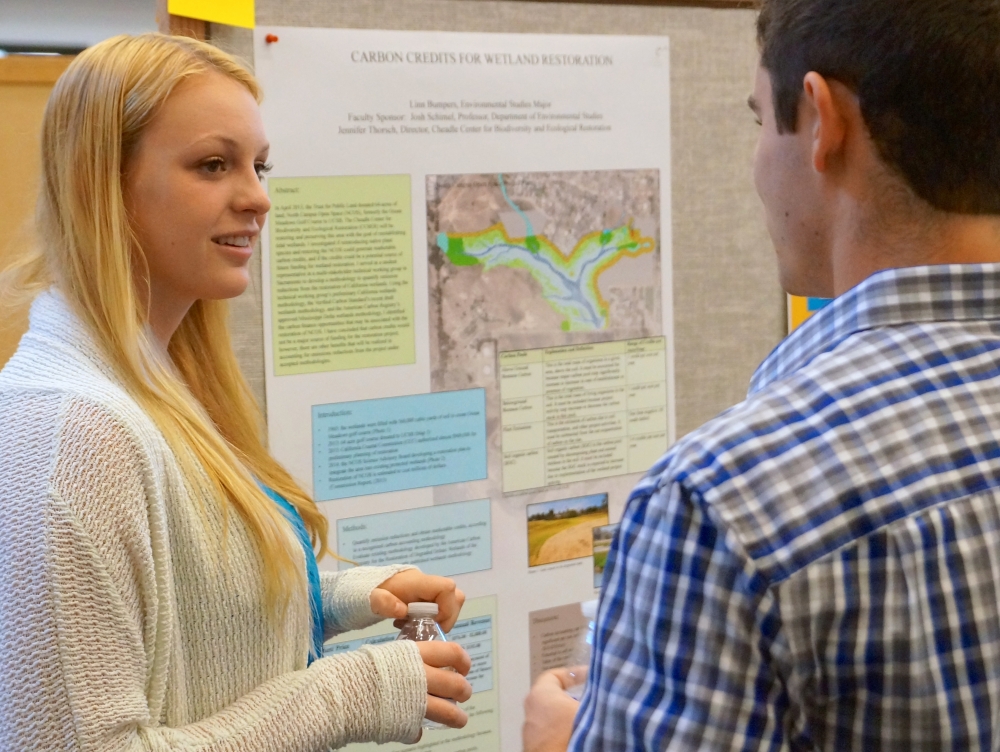
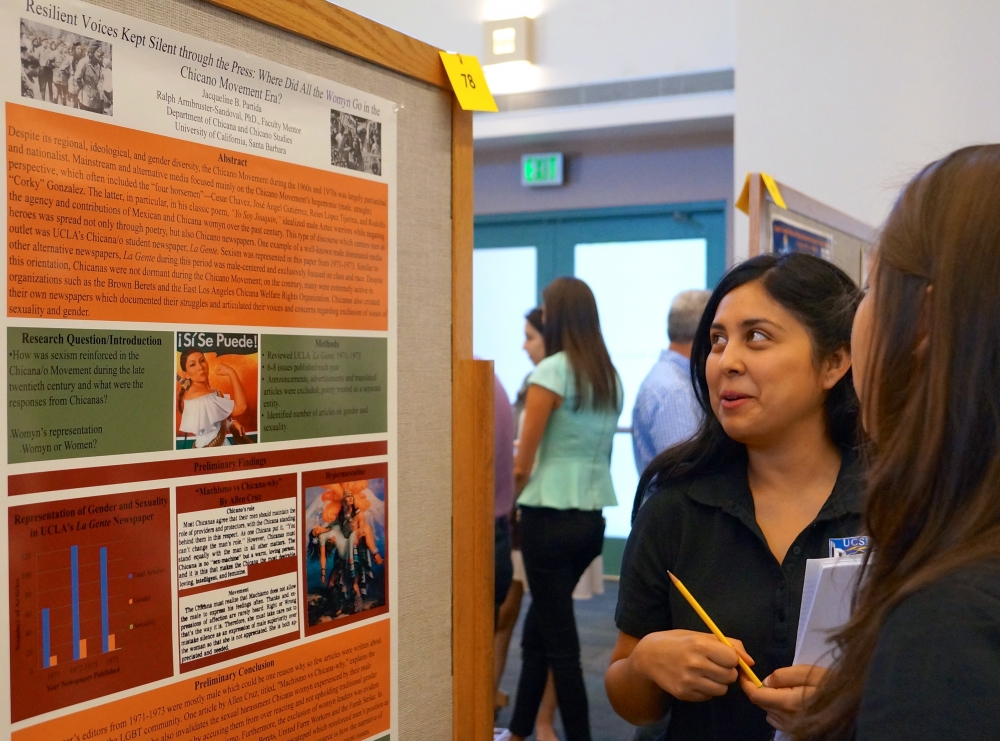
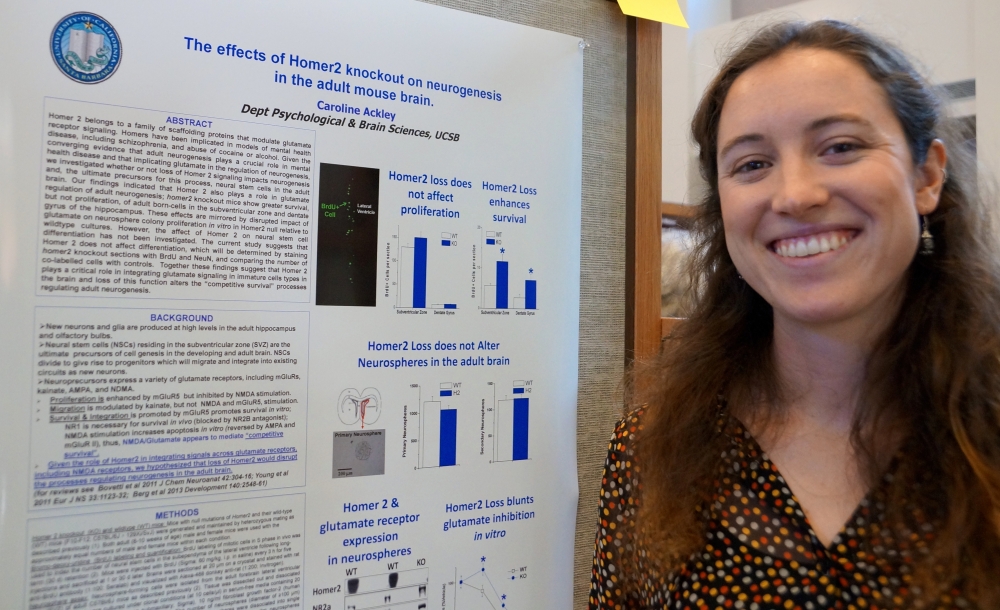
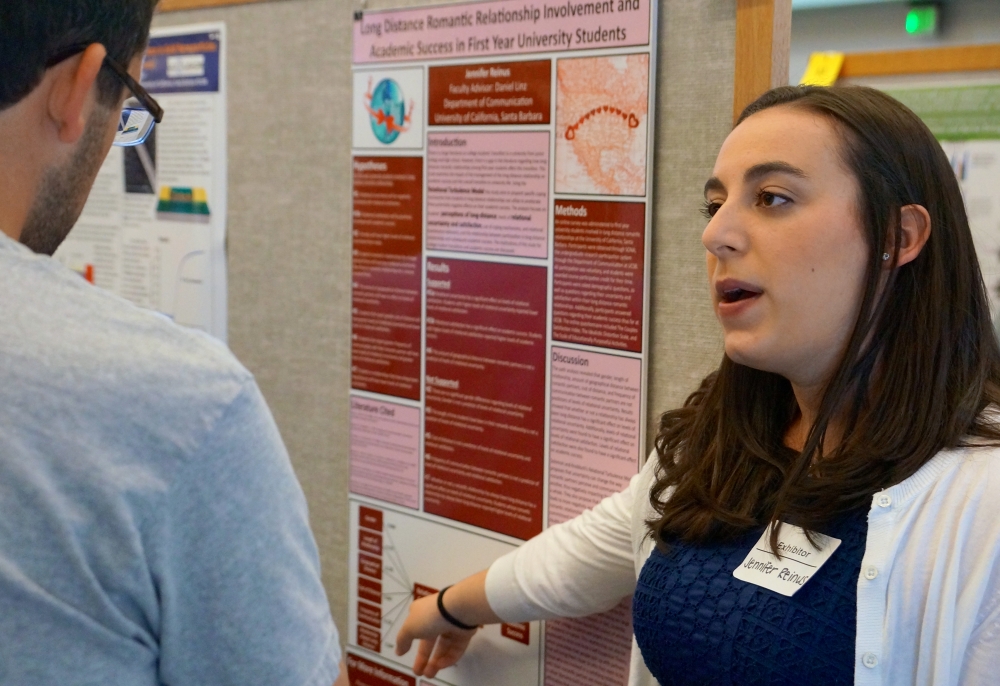
At first glance, the poster exhibition in UC Santa Barbara's Corwin Pavilion looked like any other at a professional conference. Closer examination revealed that UC Santa Barbara undergraduate students were the researchers who stood by their posters eagerly explaining them to passersby. They were participants in the largest Undergraduate Research Colloquium ever held at the university.
“I’m impressed with both the quality of their work but also with how articulate they are and what this experience has meant to them,” said William J. Ashby, professor emeritus in the Department of French and Italian and former dean of the College of Creative Studies. “They’ve all said they’ve grown both personally as well as intellectually. It’s very gratifying.”
Ashby is a judge in the Emeriti Association’s annual research prize competition, run in conjunction with the campus-wide colloquium. Cash prizes are awarded in three major disciplines: humanities and fine arts; physical science, math and engineering; and social sciences and psychology. Judges are the emeriti faculty in each of the discipline areas. Winners will be contacted by the Emeriti Association by June 1.
More than 200 students presented 181 posters. Some were group efforts, but the majority were yearlong individual research projects. More than three-quarters were supported by $750 grants from Undergraduate Research and Creative Activities (URCA) unit.
William Thi’s grant allowed him to conduct stem cell research in Dennis Clegg’s lab, which is trying come up with a treatment for age-related macular degeneration, one of the leading causes of blindness in the elderly population. Thi is working on methods to extend the length of time stems cells can be grown in culture medium.
“This is a great event because it allows students to present their research in a public forum,” said Clegg, a professor in the Department of Molecular, Cellular and Developmental Biology. “It’s a challenge for them to learn how to explain what they’re doing at a simple level to everyone that might walk by, not just someone who knows all about it, but people from other disciplines. It’s really excellent training for the undergraduates.”
Freshman Linn Bumpers said she struggled with condensing her research on how UC Santa Barbara’s wetlands restoration project might earn carbon credits for its future upkeep. “It was definitely helpful to glean the really important parts and see the core of my research,” she said. Bumpers was the student representative in a technical working group with multiple stakeholders, including the California Coastal Conservancy, the California Department of Water Resources, The Nature Conservancy, the American Carbon Registry and others. The consortium is developing a methodology for calculating carbon credit in California wetlands.
Books arts major Linda Cabrera, a senior in the College of Creative Studies, satisfied her curiosity about an abandoned church in her L.A. neighborhood. When she discovered its designer was Modernist architect Rudolph M. Schindler, she turned to UC Santa Barbara’s own Schindler archives in the Art, Design and Architecture Museum to learn more about his only church structure. Cabrera not only presented her results in poster but also in an artist’s book she created after conducting additional research on book structure and materials.
“The project has allowed me to grow as a researcher,” said Cabrera. “I do a lot of research with my book projects but this was deeper research than I’ve ever done before. It gave me a lot of new experience and allowed me to see how much I enjoy the process. It’s something I want to do more of in the future.”
Evan Barba, a senior in the Department of Ecology, Evolution and Marine Biology, discovered that female purple sea urchins provide predators with a better meal because their fat and protein content is higher than that of their male counterparts. “To be able to collect my own samples and see what I’m working on is unparalleled in every way,” he said. “I take a lot of pride in how involved UCSB is in academic research.”
Junior Iliana Avila, a double major in Chicana studies and sociology, surveyed the astonishing growth of Spanish-language radio in Los Angeles and Long Beach, which have Latino populations of 48 percent and 40 percent respectively. Her research, which she also presented at a national conference, begins to analyze the significance of Spanish-language radio to Latino listeners.
“When I started this project, I didn’t think that Latinos listened to the radio on a daily basis,” said Avila, a McNair Scholar, federal program established in memory of physicist and Challenger astronaut Ronald E. McNair to prepare first-generation, low-income and/or underrepresented undergraduates for entrance to a Ph.D. program. “But what I found was that they listen to the radio for three hours per day on average and that the larger the income the more radios in the household.”
How do long-distance romantic relationships affect academic success in first-year university students? Jennifer Reinus answered that question in her yearlong research project. A senior in the Department of Communication, Reinus analyzed responses from participants and found that more uncertainty in a relationship meant less satisfaction. She also noted that those most satisfied with their relationship experienced the highest degree of academic success.
“This is so applicable to daily life,” Reinus explained. “It’s interesting to present my research because this is essentially like a big kid’s science fair, and my work isn’t really scientific, although it is statistical in nature.”
“UCSB should be proud of the high quality and scope of the work produced by these students,” said Dawn Holmes, senior associate dean of undergraduate education in the College of Letters and Science, which was responsible for coordinating the event. “Undergraduate research is more important now than ever before and is often key to students finding employment or applying to graduate school.”

